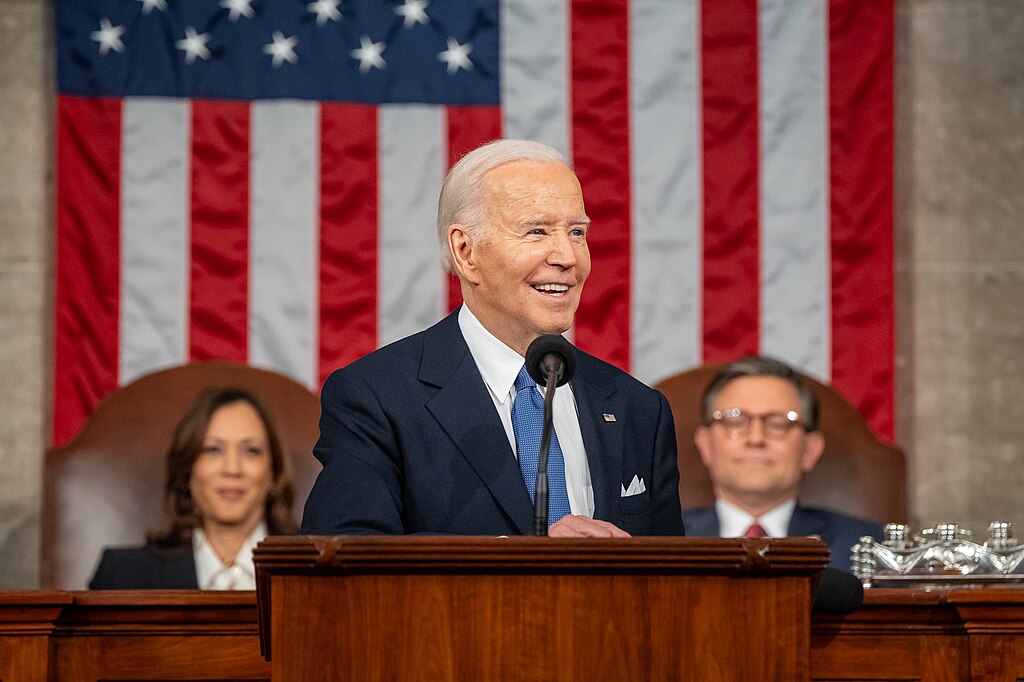President Joe Biden's latest clemency decisions have ignited bipartisan criticism, particularly over the commutation of sentences for two high-profile offenders. Among the nearly 1,500 individuals granted clemency this week, Biden's decision to end house arrest for former Pennsylvania Judge Michael Conahan and former Dixon, Illinois Comptroller Rita Crundwell has been labeled "shocking" by victims and local officials.
Controversial Clemency for a Judge Convicted in Juvenile Scandal
Michael Conahan, once a Luzerne County judge, became infamous for his role in the "kids-for-cash" scandal. Convicted in 2011, Conahan accepted kickbacks from for-profit detention centers in exchange for sending juveniles to their facilities. The fallout led to the overturning of 4,000 juvenile convictions and a $200 million restitution order for victims.
Conahan, initially sentenced to prison, was moved to house arrest in 2020 due to COVID-19 concerns under the bipartisan CARES Act. His sentence was slated to end in 2026. Biden’s commutation effectively forgives the remaining punishment, prompting outrage from families affected by his crimes.
Sandy Fonzo, whose son Edward Kenzakoski died by suicide after his detention, expressed disbelief and sorrow. "Conahan’s actions destroyed families, including mine. This pardon feels like an injustice," Fonzo told The Citizens' Voice. Pennsylvania Gov. Josh Shapiro echoed the sentiment, stating, “President Biden got it absolutely wrong and created a lot of pain here.”
Illinois Fraudster Walks Free After Record-Breaking Embezzlement
The fallout extended to Illinois, where Rita Crundwell, once Dixon's city comptroller, also benefited from Biden’s clemency package. Crundwell orchestrated what is considered the largest municipal fraud in U.S. history, embezzling $54 million over two decades. Convicted in 2012, she was sentenced to nearly 20 years in prison but was moved to house arrest during the pandemic. Her sentence was originally set to end in 2028.
Dixon city manager Danny Langloss, who helped uncover Crundwell’s crimes, condemned the decision. “I was outraged and felt a complete sense of betrayal,” Langloss said. "Justice wasn’t served here." He criticized the clemency as a failure to hold Crundwell accountable for her betrayal of Dixon's residents.
A Broader Context of Pandemic-Era Clemency
Biden’s decisions are rooted in changes made during the pandemic. The CARES Act allowed thousands of federal inmates, particularly nonviolent offenders, to serve their sentences under home confinement. Margaret Love, a former U.S. pardon attorney, defended the policy, noting that many inmates were deemed safe for community reintegration.
However, critics argue that Biden’s commutations unfairly lumped high-profile offenders with low-risk individuals. Love countered, “If you’re upset about these releases, you should have complained four years ago when they were moved from prison.”
Public Backlash Erupts on Social Media
The clemency sparked heated reactions on social media.
@JusticeForAll wrote, “This sends the wrong message to victims of judicial corruption.” @FairGov2024 tweeted, “Clemency is important, but cases like Conahan’s undermine trust in the justice system.”
@DixonVoter added, “Crundwell robbed our town blind, and now she’s free? Unbelievable.” @PolicyCritic2024 posted, “The CARES Act wasn’t meant to shield those like Conahan from accountability.”
@GovWatcher stated, “This clemency package lacked nuance; not all cases are equal.” @HumanRightsAdvoc commented, “Reforms are needed, but releasing figures like Conahan only deepens societal divides.”



 South Korea Assures U.S. on Trade Deal Commitments Amid Tariff Concerns
South Korea Assures U.S. on Trade Deal Commitments Amid Tariff Concerns  Netanyahu to Meet Trump in Washington as Iran Nuclear Talks Intensify
Netanyahu to Meet Trump in Washington as Iran Nuclear Talks Intensify  Ohio Man Indicted for Alleged Threat Against Vice President JD Vance, Faces Additional Federal Charges
Ohio Man Indicted for Alleged Threat Against Vice President JD Vance, Faces Additional Federal Charges  New York Legalizes Medical Aid in Dying for Terminally Ill Patients
New York Legalizes Medical Aid in Dying for Terminally Ill Patients  Nighttime Shelling Causes Serious Damage in Russia’s Belgorod Region Near Ukraine Border
Nighttime Shelling Causes Serious Damage in Russia’s Belgorod Region Near Ukraine Border  US Pushes Ukraine-Russia Peace Talks Before Summer Amid Escalating Attacks
US Pushes Ukraine-Russia Peace Talks Before Summer Amid Escalating Attacks  Iran–U.S. Nuclear Talks in Oman Face Major Hurdles Amid Rising Regional Tensions
Iran–U.S. Nuclear Talks in Oman Face Major Hurdles Amid Rising Regional Tensions  Trump Allegedly Sought Airport, Penn Station Renaming in Exchange for Hudson River Tunnel Funding
Trump Allegedly Sought Airport, Penn Station Renaming in Exchange for Hudson River Tunnel Funding  Trump Backs Nexstar–Tegna Merger Amid Shifting U.S. Media Landscape
Trump Backs Nexstar–Tegna Merger Amid Shifting U.S. Media Landscape  TrumpRx Website Launches to Offer Discounted Prescription Drugs for Cash-Paying Americans
TrumpRx Website Launches to Offer Discounted Prescription Drugs for Cash-Paying Americans  U.S. Announces Additional $6 Million in Humanitarian Aid to Cuba Amid Oil Sanctions and Fuel Shortages
U.S. Announces Additional $6 Million in Humanitarian Aid to Cuba Amid Oil Sanctions and Fuel Shortages  Trump Endorses Japan’s Sanae Takaichi Ahead of Crucial Election Amid Market and China Tensions
Trump Endorses Japan’s Sanae Takaichi Ahead of Crucial Election Amid Market and China Tensions  China Warns US Arms Sales to Taiwan Could Disrupt Trump’s Planned Visit
China Warns US Arms Sales to Taiwan Could Disrupt Trump’s Planned Visit  U.S. Lawmakers to Review Unredacted Jeffrey Epstein DOJ Files Starting Monday
U.S. Lawmakers to Review Unredacted Jeffrey Epstein DOJ Files Starting Monday  Trump Signs Executive Order Threatening 25% Tariffs on Countries Trading With Iran
Trump Signs Executive Order Threatening 25% Tariffs on Countries Trading With Iran  Jack Lang Resigns as Head of Arab World Institute Amid Epstein Controversy
Jack Lang Resigns as Head of Arab World Institute Amid Epstein Controversy  Trump Says “Very Good Talks” Underway on Russia-Ukraine War as Peace Efforts Continue
Trump Says “Very Good Talks” Underway on Russia-Ukraine War as Peace Efforts Continue 































